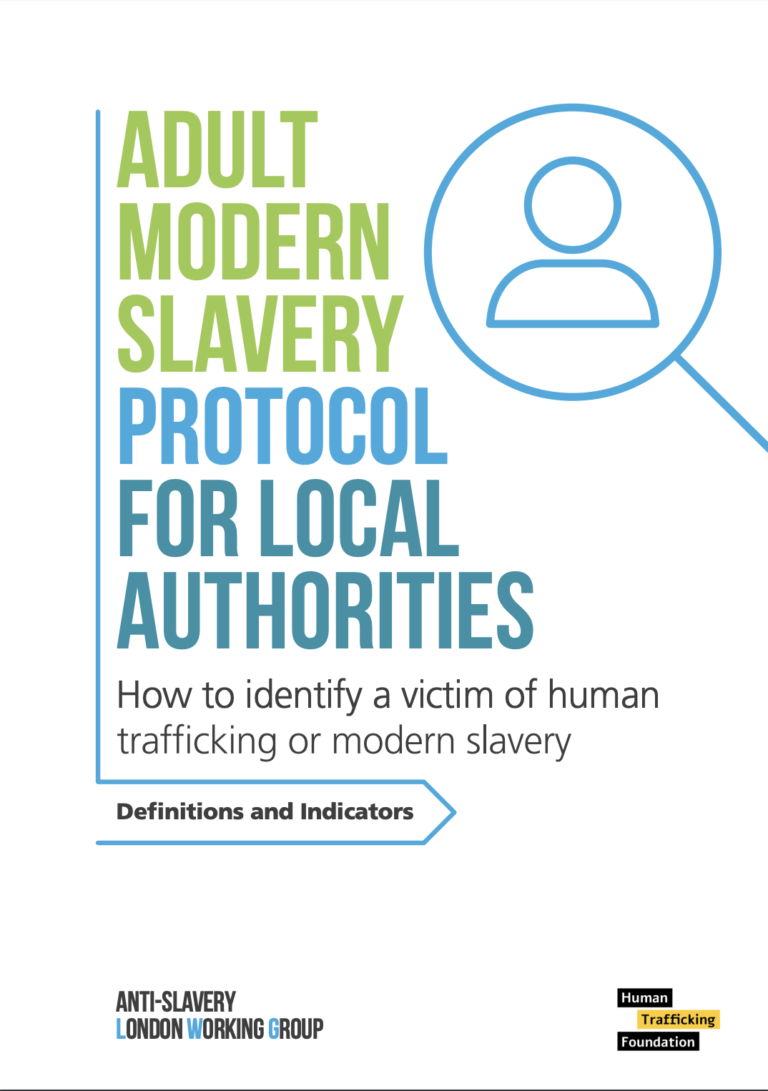Human trafficking is the movement of a person from one place to another for the purposes of exploitation. The UN defined human trafficking in the ‘Palermo Protocol’ as the ‘recruitment, transportation, transfer, harbouring or receipt of persons by means of threat, or use of force, coercion or deception…to achieve the consent of a person having control over another person, for the purpose of
exploitation’ (UN, 2000, Art. 3). According to this definition, trafficking includes sexual exploitation, forced and bonded labour, domestic servitude, any form of slavery and removal of organs. The definition of exploitation is not limited.
This guide provides a set of definitions and indicators to assist local authorities in the identification of victims of human trafficking. It defines different types of coercion and control, and of exploitation, and sketches a set of guidelines for practitioners towards potential victims of modern slavery.

